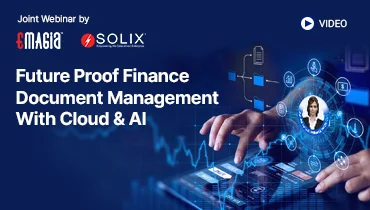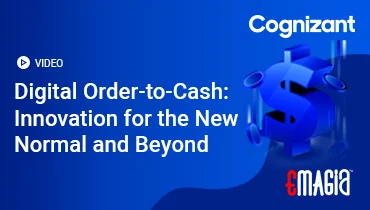Autonomous Finance Solutions are advanced technologies and systems that automate financial tasks and decision-making processes. Leveraging artificial intelligence and machine learning, these solutions optimize financial operations such as budgeting, investing, and expense management. They aim to enhance efficiency, accuracy, and agility in managing personal or business finances, revolutionizing traditional financial practices.
Introduction to Autonomous Finance Solutions
Understanding Autonomous Finance
Autonomous Finance refers to the integration of AI and machine learning technologies to automate financial processes and decision-making. Unlike traditional automation that follows predefined rules, autonomous systems can learn from data, adapt to new information, and make informed decisions without human intervention.
Evolution from Automation to Autonomy
The financial sector has evolved from manual processes to automation, and now to autonomy. While automation streamlines repetitive tasks, autonomous finance goes a step further by enabling systems to make decisions, predict outcomes, and optimize operations in real-time.
Key Components of Autonomous Finance
Artificial Intelligence and Machine Learning
AI and ML algorithms analyze vast amounts of financial data to identify patterns, forecast trends, and make data-driven decisions. These technologies enable systems to improve over time, enhancing accuracy and efficiency.
Robotic Process Automation (RPA)
RPA automates routine tasks such as data entry, invoice processing, and reconciliations. When combined with AI, RPA can handle complex processes, reducing errors and freeing up human resources for strategic activities.
Natural Language Processing (NLP)
NLP allows systems to understand and interpret human language, facilitating better communication between financial systems and users. This technology is crucial for processing unstructured data like emails and documents.
Cloud Computing and Data Analytics
Cloud platforms provide scalable infrastructure for storing and processing financial data. Advanced analytics tools enable real-time insights, supporting proactive decision-making and strategic planning.
Benefits of Implementing Autonomous Finance Solutions
Enhanced Efficiency and Productivity
By automating routine tasks, organizations can significantly reduce processing times and operational costs. Employees can focus on higher-value activities, leading to increased productivity.
Improved Accuracy and Compliance
Autonomous systems minimize human errors, ensuring accurate financial reporting and compliance with regulatory standards. Real-time monitoring helps in early detection of anomalies and fraud.
Better Decision-Making
Access to real-time data and predictive analytics empowers organizations to make informed decisions quickly. This agility is crucial in responding to market changes and seizing opportunities.
Cost Savings
Reducing manual interventions and optimizing processes lead to significant cost savings. Organizations can allocate resources more effectively, improving overall financial health.
Use Cases Across Financial Functions
Accounts Receivable and Payable
Autonomous systems streamline invoicing, payment processing, and collections. They can predict payment behaviors, optimize cash flow, and reduce days sales outstanding (DSO).
Treasury Management
AI-driven tools provide accurate cash forecasting, liquidity management, and risk assessment. These capabilities enable better investment decisions and financial planning.
Financial Planning and Analysis (FP&A)
Autonomous finance enhances budgeting, forecasting, and scenario analysis. Real-time data allows for dynamic planning and quick adjustments to financial strategies.
Compliance and Audit
Automated compliance checks and audit trails ensure adherence to regulations and standards. These systems can quickly adapt to new compliance requirements, reducing the risk of penalties.
Market Trends and Growth Projections
The autonomous finance market is experiencing rapid growth, driven by technological advancements and the need for efficient financial management. According to Allied Market Research, the market is projected to reach $82.6 billion by 2032, growing at a CAGR of 18.2% from 2023 to 2032 .
Key factors contributing to this growth include the adoption of AI and machine learning, demand for personalized financial services, and the need for cost-effective operations.
How Emagia Empowers Autonomous Finance
Emagia’s AI-Driven Solutions
Emagia offers a suite of AI-powered tools designed to automate and optimize financial operations. Their solutions encompass credit risk assessment, receivables management, collections, deductions, cash application, and electronic invoicing.
GiaGPT: Generative AI for Finance
Emagia’s GiaGPT is a generative AI solution tailored for finance professionals. It enables users to interact with financial reports and data through natural language, facilitating rapid insights and decision-making .
Integration Capabilities
Emagia’s solutions are designed to integrate seamlessly with existing ERP systems, including SAP, Oracle, and Microsoft Dynamics. This compatibility ensures smooth implementation and minimal disruption to current operations.
Frequently Asked Questions
What is the difference between automation and autonomous finance?
Automation involves using technology to perform repetitive tasks based on predefined rules. Autonomous finance, however, leverages AI and machine learning to make decisions, learn from data, and adapt to new information without human intervention.
How do autonomous finance solutions integrate with existing systems?
These solutions are typically designed with APIs and connectors that allow seamless integration with existing financial systems like ERPs and CRMs, enabling smooth data flow and process automation.
Are autonomous finance solutions secure?
Yes, they employ advanced security measures, including encryption and multi-factor authentication, to protect sensitive financial data. Compliance with regulations like GDPR and SOX is also maintained.
What types of businesses can benefit from autonomous finance?
Businesses of all sizes and industries can benefit, especially those looking to improve efficiency, accuracy, and decision-making in their



